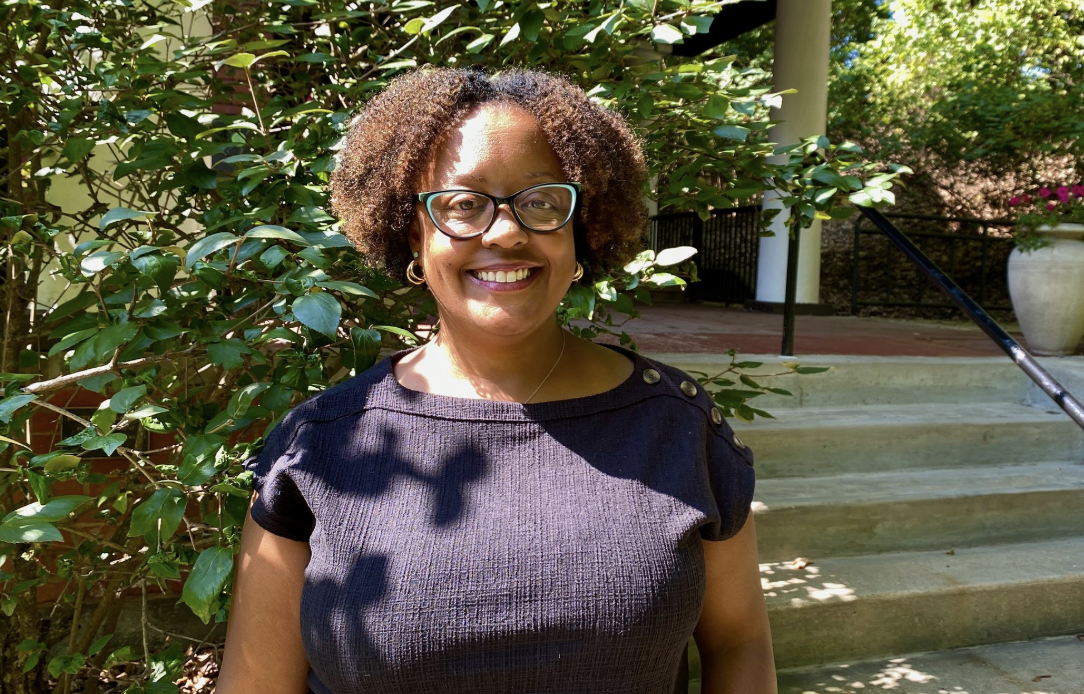Sakena Jwan Washington spent her first and second grade summers at Chatham University’s summer day camp making crafts and rolling down Chapel Hill. Now, she is experiencing a full-circle moment as Chatham’s 2024-25 emerging Black writer-in-residence.
The Black-writers-in-residence program within the MFA Creative Writing program was created to support Black writers in Pittsburgh. Residents host public readings of their work, publish their writing and are mentored by current Chatham faculty.
“They are so wonderful and welcoming,” Washington said. “Everyone has been really generous with their time.”
On top of readings, writing and mentorship, all emerging Black writers-in-residence teach a class. Washington will be teaching a class about writing nonfiction for undergraduate students in the spring.
“It’s like being a student with them in a sense,” Washington said. “I’m having to prepare in advance and then provide insight.”
Anjali Sachdeva, assistant professor of creative writing and one of the coordinator’s of the Black writer-in-residence program is Washington’s mentor.
Washington meets with Sachdeva to receive feedback on a rough draft of her chapbook, a booklet usually containing poetry or short stories, which will be published by the end of her term as the emerging Black writer-in-residence. Washington teased a section of her chapbook, which includes memories from her life, during a reading on Nov. 13 in the Laughlin Hall Welker Room.
“It’s like the most generative I’ve ever been, and it’s in large part because I have this person, who’s my advocate, mentor and likes encouraging me,” Washington said about Sachdeva.
To ease the transition into this role, she also had the opportunity to meet with the former emerging Black writer-in-residence Cameron Barnett.
“He was really generous and paid it forward, like previous writers had in that role,” Washington said. “He guided me through the syllabus process and what to expect.”
Washington shared that the most rewarding part of being a professor is seeing students find their voices.
“A number of my students were reticent in the beginning to share how they felt about a certain piece,” Washington said. “I’m seeing more of [them] connecting with their work and inspired by certain craft elements.”
Washington was born in Harrisburg, but her family moved to North Hills two months later. Washington recalls her love for writing blossoming at 10 years old. In fifth grade, her homeroom teacher held a creative writing hour after lunch.
“We would just let loose on the page and write,” Washington said. “I wish I still had them to kind of see how my brain worked then.”
In high school, Washington participated in a Black journalism workshop led by local media pioneer Chris Moore, where she gained first-hand experience in newspaper writing, broadcast and radio. She had the opportunity to interview local leaders and celebrities, introduce new music and hold roundtable discussions on “Teen Talk” with WAMO, which was the only local Black radio station at the time.
Washington then went to earn her bachelor’s degree from Clark Atlanta University and her master’s degree from Antioch University in Los Angeles, focusing on writing fiction.
“It was mostly because just the idea of writing a memoir or nonfiction at the time terrified me,” Washington said. “When I wrote fiction, people [could] see through this thinly veiled nonfiction.”
Washington’s perspective changed when she read an article published in 2019 that was written by a group of sociologists detailing an index report on cities and their livability. The report determined that Pittsburgh was the worst place for Black women to thrive in.
Washington wrote an op-ed about the article and sent it to multiple outlets. The Huffington Post accepted her work on the same day.
“That was sort of the turning point for me and I thought, ‘Maybe I have more to say about my life and how I see the world,’” Washington said.
Though Washington began her writing career as a journalist, she believes that it helped her transition to creative writing.
“There’s hard news, then there’s narrative journalism, and I feel like creative nonfiction is somewhere in that,” Washington said. “Creative nonfiction blows out the narrative even more and creates more scenes and storytelling.”
Washington draws inspiration for her writing in many ways, such as recording herself speaking and completing writing exercises.
“If I’m feeling something really deeply, like the op-ed piece, it’s almost a response,” Washington said.
She also gets inspiration from reading work by other authors.
“Often I see that by reading other authors, I’m not going deep enough in my own writing,” Washington said. “It allows me to reapproach a story and tell it.”
Some of her favorite authors include Roxane Gay, whom she described as a vulnerable, smart and witty writer.
“I love hearing her interviews, too, because she always talks about being a good literary citizen in the world,” Washington said.
For any aspiring writers, Washington expressed the importance of free writing.
“As a new writer, I was so fixed on what the rules were, especially say 10 to 15 years ago,” Washington said. “I only thought good writing was good if you approached it a certain way. The only way to find your voice is to write in an uninhibited fashion.”


